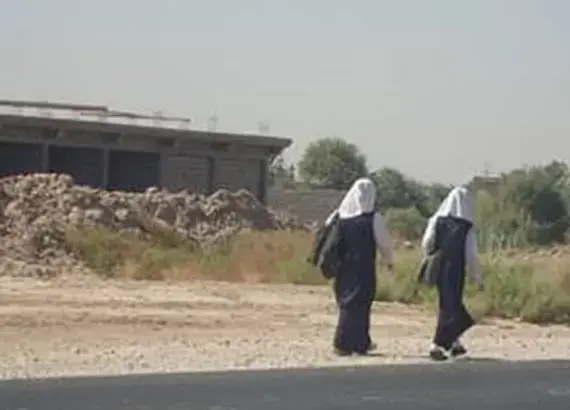
Success Story
Jobs, Economy, Services Continue to Top Iraqis’ List of Concerns
With the withdrawal of U.S. troops from Iraq, citizens are increasingly worried about the government’s ability to run the country — particularly to create jobs and provide basic services and security. Compounding the problem, Iraqis feel increasingly disconnected from their leaders, with limited opportunities to meet with elected officials and share their frustrations and grievances.
Further splitting the national mood, minority Sunni Arabs feel largely ignored or discriminated against in politics, while ethnic Kurds — enjoying comparative prosperity within the Kurdish autonomous region in northern Iraq — feel optimistic about the future.
These findings are from the latest in a series of surveys commissioned by NDI to help Iraq’s political parties and elected officials respond to the needs of citizens. The survey, conducted by the research firm Greenberg Quinlan Rosner, comprised 2,000 face-to-face interviews from Sept. 22 through Oct. 5. It builds on research conducted in October 2010 and March 2011 that focused on Iraq’s government formation process, sectarianism and gender issues.
This round of opinion research found that:
- Jobs remain the top concern, with nearly six in 10 respondents naming unemployment as one the top two issues the government should address. An overwhelming majority, 85 percent, believe the job situation is getting worse. Nearly half — 49 percent — characterize the economy as weak and only 37 percent think the country is headed in the right direction.
- Distrust of politicians is high. The focus groups reveal a strong belief that politicians are at the root of Iraq’s problems. Driving the diminishing support for Iraq’s leaders is a strong sense that the political class is simply not responsive to citizens. Despite negative attitudes toward politicians, Iraqis want more contact with members of parliament (MPs). Strong majorities report that actions such as opening a constituency office, going on a neighborhood listening tour, and holding question-and-answer sessions would make them feel more favorable toward their MPs. Eighty-six percent support the creation of constituency offices.
- As support for elected officials declines, Muqtada al-Sadr has seen his popularity rise, especially among young, urban, and poorer Iraqis. Sadr, a Shia cleric with a strong anti-American platform, is the only national political leader whose favorability rating has not fallen since July.
- Civil society organizations (CSOs) are seen primarily as groups that deal with humanitarian — not political — issues. Half of all Iraqis say that CSOs have no real impact in their lives. In the current political environment, with such high distrust for politicians, CSOs have an opening to build their role as independent political advocates for solutions that impact citizens’ everyday lives.
In a series of briefings in Iraq, NDI advisers met with party and government leaders to present results. More Iraqi MPs are now considering opening constituency offices to help them listen to and respond to citizens’ needs.
Read a full report and view the presentation.
Related:
Published Jan. 26, 2012



